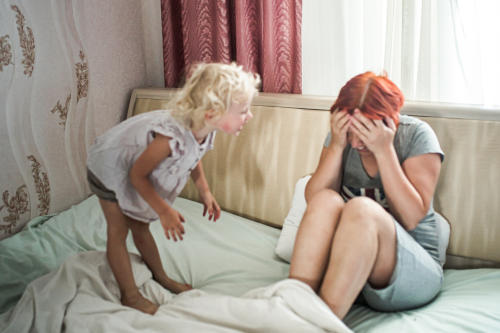Falling out with brothers and sisters or school friends, learning how to manage relationships and emotions, and understanding how to negotiate conflicts is part of growing up. If we’re honest, most of us probably indulged in a bit of bickering or teasing when we were children and may also have been on the receiving end from time-to-time.
But when does standard, childhood behaviour tip over into bullying? According to the organisation Anti-Bullying Alliance, bullying is –
‘The repetitive, intentional hurting of one person or group by another person or group, where the relationship involves an imbalance of power. Bullying can be physical, verbal or psychological. It can happen face-to-face or online’.
As you might suspect, kids with any kind of special need that marks them as different to their peers are particularly vulnerable to bullying – a theory borne out by research quoted on the ABA website.
Bullying Can Have Far-Reaching Effects

Not surprisingly, being bullied can harm a young person’s self-esteem and confidence well into their adult years. Seeking to offer children, families and schools ways to identify and counteract bullying, in 2002, the ABA established ‘Anti-Bullying Week’ which this year runs from 13th to 17th November.
Specialist SEN teacher and tutor Jane, has a daughter who doesn’t have SEN but was bullied as a young child over a long period. Although she came through the experience and is now a happy and successful adult, Jane remembers only too well how badly she was affected.
“My daughter was bullied by a so-called friend,” she recalls. “This girl would be lovely to her one moment, then she would go silent and go off and play with other kids, leaving my daughter anxious and fearful about what she’d done wrong. Eventually, the girl would come back with a list of ‘crimes’ and make my daughter say sorry.”
Provide Coping Strategies

It took a long time, Jane says, to teach her daughter ways to cope with the situation and to stop allowing herself to be manipulated. Many of the strategies she used, she says, could equally be helpful to a child with SEN.
The first thing, she advises, is to sit down with your son or daughter and identify patterns in the bullying – does the bully always behave in a predictable way or become nasty in certain situations? For example, is it always when you’re lining up in the playground and the teacher isn’t looking? Once you know what the patterns are, you can practise different responses with your child.
“One tactic is to retaliate with humour,” Jane suggests. “If someone says something mean, such as, ‘Your hair looks horrible!’ a child might reply, ‘Thanks! I’m going to a fancy-dress party as a clown later’. Saying something unexpected means that the bully won’t get the reaction they are looking for and may help to tone down the situation. If people say unkind things online, you can help your child to prepare humorous responses in advance rather than getting angry.
Role Play Helps Kids to Practise What to Say in a Difficult Situation

“But I feel that using role-play is by far the most effective tool,” she continues. “You can take it in turns to play the child and their bully and see how they react. Together, you can pick apart how the situations begin and how your child can change how they respond. But it’s a long process and change doesn’t happen overnight.”
Even so, a child with SEN or SEND might face extra obstacles in learning to respond, Jane concedes. “In some ways, children with ASC (autism) can be more vulnerable to being bullied,” she speculates. “For example, one of my daughter’s best friends is autistic and when people used to say horrible things to him, he felt it but he didn’t understand why they were doing it. And if a child is impulsive, maybe because they have ADHD, it might be very hard for them to think before they act and remember what they’d planned to say. They might also fly off the handle.
“But we need to talk to all children about bullying as part of life,” she concludes. “Not to frighten them but to teach them to stand up for themselves in case it happens. We need to equip them with the necessary skills.”
The ABA website offers advice and support for parents, teachers and children themselves.




